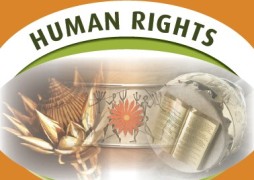
One of the most historic and political holidays in the calendar of South Africa is March 21, Human Rights Day, when the country commemorates the death of 69 people who were shot and killed in 1960 by apartheid police while protesting against repressive pass laws.
As part of the commemorations, the National Assembly held a debate to mark Human Rights Day under the theme: “Celebrating the Centenary of N R Mandela by Promoting and Deepening a Human Rights Culture Across Society”.
Opening the discussion, the Minister of Justice and Correctional Services, Adv Michael Masutha, called on South Africa to celebrate human rights by ensuring the realisation of the rights enshrined in the Constitution as well as the implementation of the National Development Plan (NDP).
He also said government will continue to implement programmes that will ensure the progressive realisation of the rights in the Bill of Rights, including measures geared to advance radical socio-economic transformation as aptly articulated by the NDP.
“This debate provides an occasion to take stock of where the country is in our quest to deepen a human rights culture and advance especially socio-economic rights to reverse the devastating effects of poverty, inequality and economic deprivation which are the direct consequence of colonialism and apartheid. Not only were Africans excluded from the economic mainstream, but also from its social security, thus leading to a cycle of poverty, and which our Bill of Rights seeks to undo through the recognition of and progressive realisation of socio-economic rights,” the Minister said.
Democratic Alliance (DA) Member of Parliament, Mr Ian Ollis, said his party was going to launch a school safety campaign to “fight for the rights of the children”.
“The DA’s Safe Schools campaign can and will vastly improve safety at our schools if we implement it properly,” he said.
Mr Ollis called on the Minister of Justice and Correctional Services to make sure that the National Register for Sex Offenders was properly maintained so that provincial education departments and the South African Council of Educators (SACE) can vet every teacher against that register.
Congress of the People’s Mr Willie Madisha said South Africa’s constitutional order was underpinned by the Bill of Rights. “Some of these rights are political and civil in nature and others are socio-economic, but no less important. It is in the progressive realisation of our socio-economic rights that we will ensure that we achieve a society within which the divisions of the past are healed and of a society based on social justice, dignity and equality,” he said.
Other Members of the National Assembly, during the debate, felt that poverty and inequality could potentially result in the negation and violation of most basic rights guaranteed within the Bill of Rights.
The day is linked to 21 March 1960 when apartheid police opened fire on a crowd that was protesting against pass laws, 69 people were killed and about 289 were injured. Women and children were among the dead, mostly with gunshot wounds in their back as they were trying to run away. The protests extended to other parts of the country, including Langa township in Cape Town, where three people were killed and many others injured, also by the police.
The massacre sparked an international outcry, prompting the United Nations Security Council to pass a resolution regarding the events of March 21 1960, voicing anger at the policies and actions of the apartheid government. The Security Council also called on the government to initiate measures at bringing about racial harmony based on equality and to abandon the policy of apartheid (segregation).
In memory of the Sharpeville Massacre, the United Nations Education, Scientific and Cultural Organisation (Unesco) marks March 21 as the International Day for the Elimination of Racial Discrimination.
The Truth and Reconciliation Commission (TRC), established by the democratic government after 1994, found that the police actions of March 21 1960 “constituted gross human rights violations”.
Pass laws were enforced under apartheid and colonialism to control the movement of black people and keep them out of the cities. It was compulsory for all black people over the age of 16 years to carry a pass book or “Dom Pass” at all times in white areas, where they went to seek employment. The pass laws stipulated where, when and how long a person could remain in the city.
By Sakhile Mokoena

